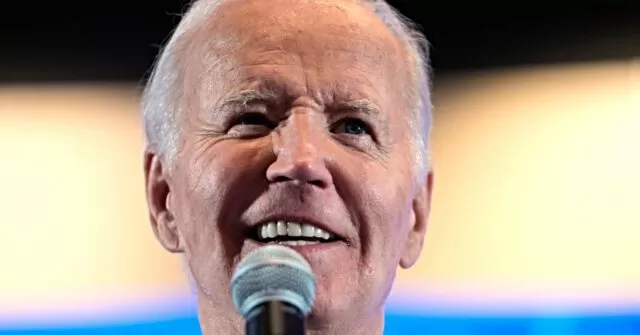The recent presidential debate between President Joe Biden and former President Donald Trump has left many questioning Biden’s performance. Journalists and political commentators have been quick to analyze and critique the president’s behavior during the debate, with many pointing to a “bunker mentality” as the root cause of his dismal showing. But what exactly does this mean and why is it a cause for concern?
According to a report released on Tuesday, President Biden’s team of advisors has cited a growing sense of strict control and isolation within the administration as a key factor in his underwhelming performance. This “bunker mentality” refers to a situation in which a leader becomes increasingly secluded from outside influences and relies solely on a small group of advisors to make decisions. As Biden’s term progresses, it seems that this bunker mentality has only intensified, resulting in the president’s self-inflicted humiliation during the debate.
The impact of this bunker mentality can be seen in President Biden’s debate preparation, or lack thereof. Many have noted that the president was not adequately prepared to respond to Trump’s attacks and often stumbled on his words, causing him to appear flustered and unsure of himself. This lack of preparation can be attributed to the tight control and isolation within the administration, with advisors potentially sheltering the president from criticism and constructive feedback.
While this may seem like a strategic move to protect the president, it has ultimately backfired in the form of a poor debate performance. The American people expect their leaders to be well-informed, articulate, and able to handle pressure – qualities that were unfortunately lacking in Biden’s performance. The debate serves as a reminder that in order to effectively lead a nation, a leader must be open to diverse perspectives and be willing to accept constructive criticism.
Moreover, the bunker mentality has also hindered President Biden’s ability to connect with the American people. Throughout his campaign, Biden appealed to the idea of unity and bringing the country together. However, the excessive control and isolation within the administration have only served to create a divide between the president and the citizens he pledged to unite. This was evident in the debate when Biden seemed disconnected and out of touch with the concerns and issues facing the American people.
The report also sheds light on the blame game being played within the administration, with advisors pointing fingers at each other for the president’s performance. This further highlights the negative effects of a bunker mentality and the need for more open and collaborative decision-making processes. It is imperative for leadership to foster an environment where diverse opinions are valued and encouraged, as it leads to better decision-making and ultimately, a stronger and more united nation.
As President Biden continues his term, it is crucial for him to break out of this bunker mentality and embrace a more open and inclusive leadership style. The American people are looking for a strong and capable leader who is willing to listen to different perspectives and take decisive action. This is not a sign of weakness, but rather a strength that drives progress and brings people together.
In conclusion, the debate between President Biden and former President Trump served as a wake-up call for the administration. The “bunker mentality” that has taken hold must be addressed, and steps must be taken to promote a more open and collaborative leadership style. As we navigate through these challenging times, it is crucial for our leaders to be open, inclusive, and willing to learn from their mistakes. It is time for President Biden to break out of the bunker and lead with strength, unity, and compassion. Let us hold our leaders accountable and strive for a brighter future together.

